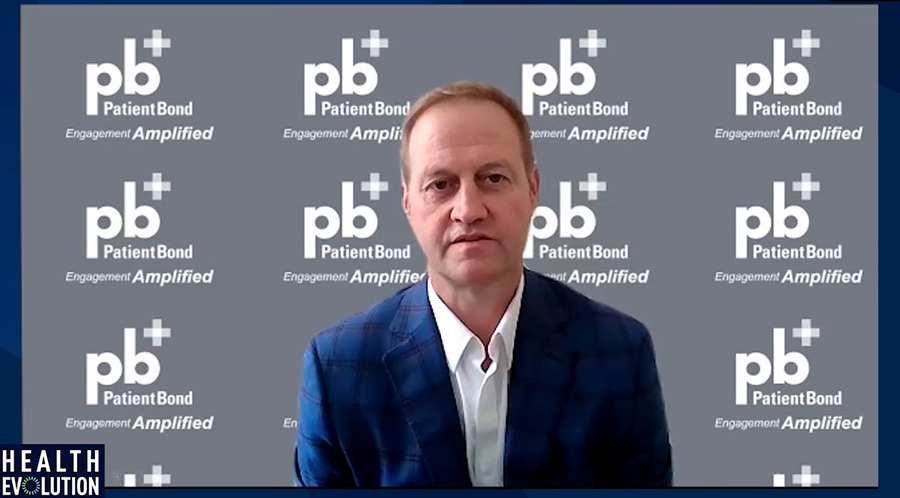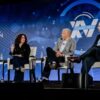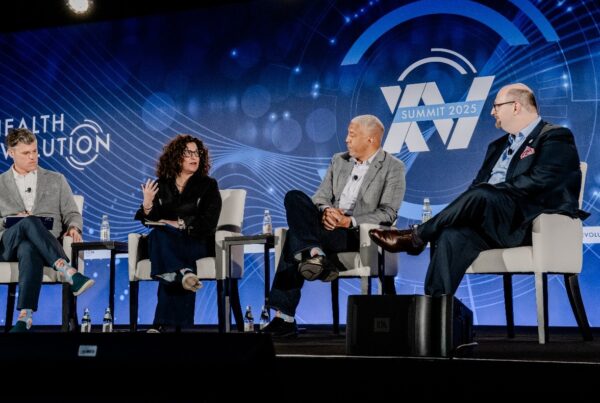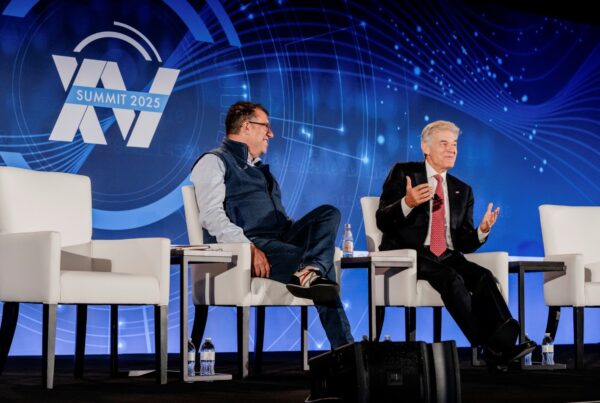Health Evolution interviewed PatientBond CEO Justin Dearborn for a three-part package that also includes a feature article explaining why Consumer science is an opportunity for bolstering engagement in health care and a Q&A profiling Dearborn.
Below are excerpts from the full video interview.
On the patient or member engagement opportunities CEOs should understand about consumer science:
Dearborn: Consumer science involves using discipline methodologies to uncover meaningful insights regarding consumer beliefs, needs, habits, motivations, and an understanding of how consumers interact with a health care ecosystem. We have a proven segmentation model that includes several hundred million data points collected from tens of thousands of people over eight years.
How PatientBond leverages consumer science to drive engagement:
Dearborn: We use consumer science known as psychographic segmentation. This goes beyond demographics in recognizing that the same people, the same age group, gender, ethnicity, or even health condition do not act and think the same way. So we use a health care consumer psychographic profile to personalize digital engagement, content channel, or fidelity mix in a frequency of those communications to resonate with the individual, thereby motivating and activating desired healthy outcomes.
Results to date that might surprise executives who aren’t familiar with consumer science:
Dearborn: In marketing, we have seen a 50 percent increase in converting patients to in-network primary care from a frequent ER visitor. We’ve increased telehealth registrations by 7x. We’ve increased Google reviews, which is the main form of researching urgent care, upwards of 30 percent. We’ve seen a 90 percent reduction in unnecessary hospital readmissions for conditions, such as congestive heart failure and COPD. We’ve also seen a 4x increase in patient payments, a 25 percent increase in collections and a 50 percent reduction in paper statement and postage costs.
What executives should be thinking about today to prepare for the future with more consumer science:
Dearborn: There’s a need for more focus on consumer insights and behavioral economics. This includes mapping patient and member journeys at each stage of the health care process for shopping, for receiving care, to paying for care and ensuring patients return — all in a more efficient manner. Health care also needs to look beyond its own walls because patients or members generally spend five or less percent of their time with health care providers and health care is sitting in some cases with a lot of data, but consumers aren’t focusing on that. Bringing together health care and other consumer data at the individual level will really enable extremely powerful engagement.
Watch the full video to learn about where PatientBond begins engagement efforts, more of the tangible and financial results achieved thus far, how consumer science enables health care organizations to move beyond a one-size fits all approach and how Dearborn sees consumer science—and patient or member engagement along with it—evolving to true, one-to-one personalized and automated engagement in health care.











